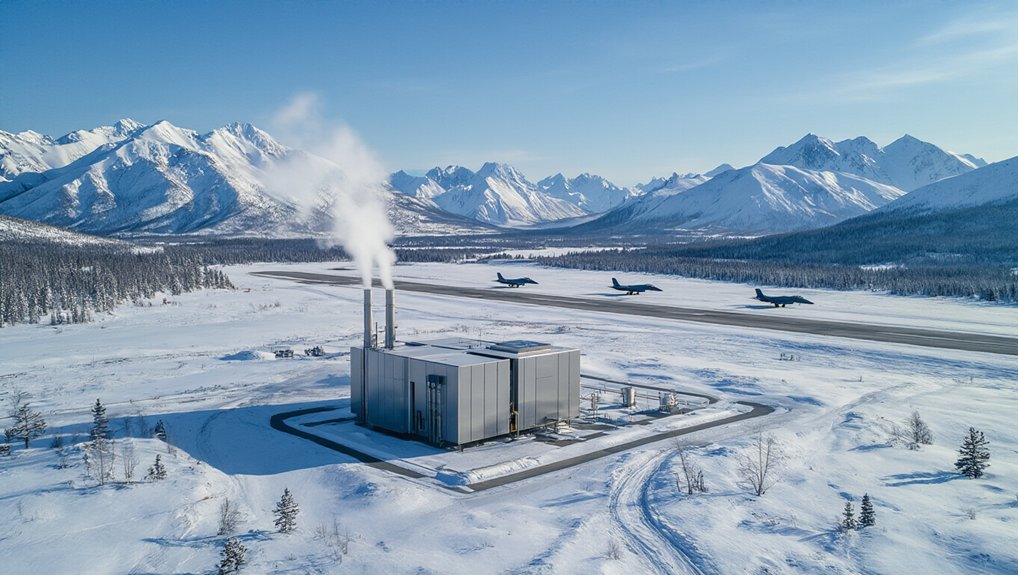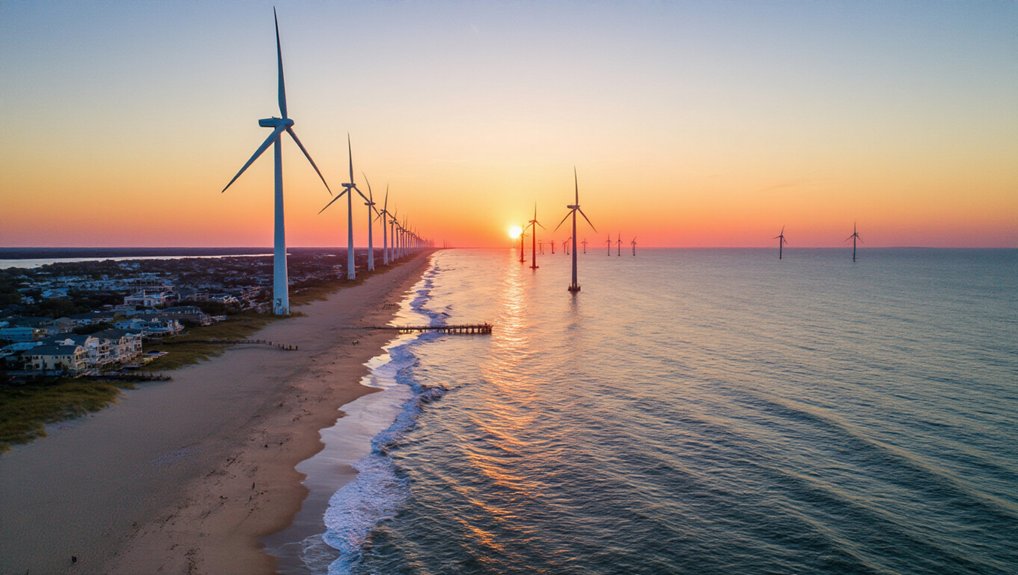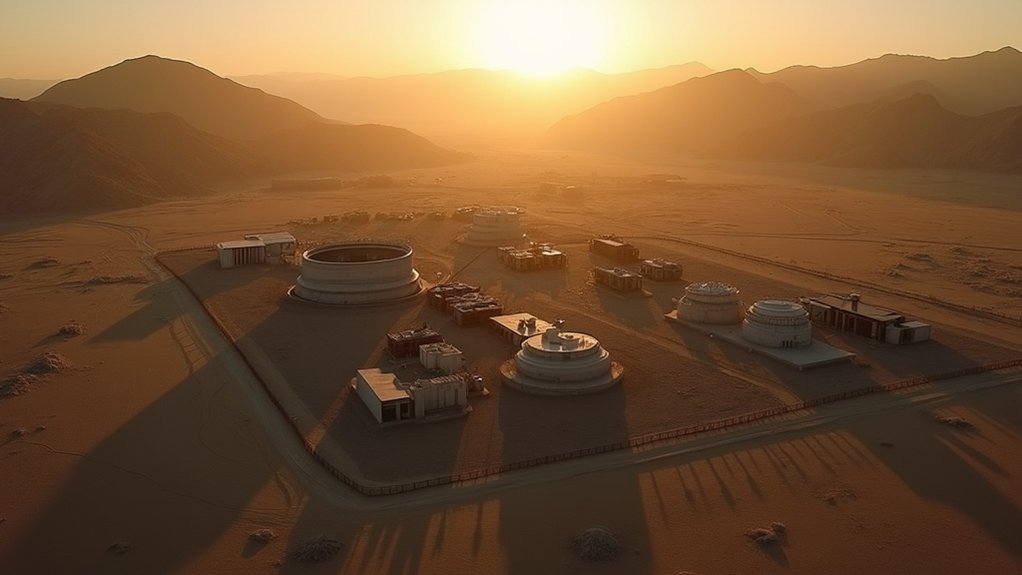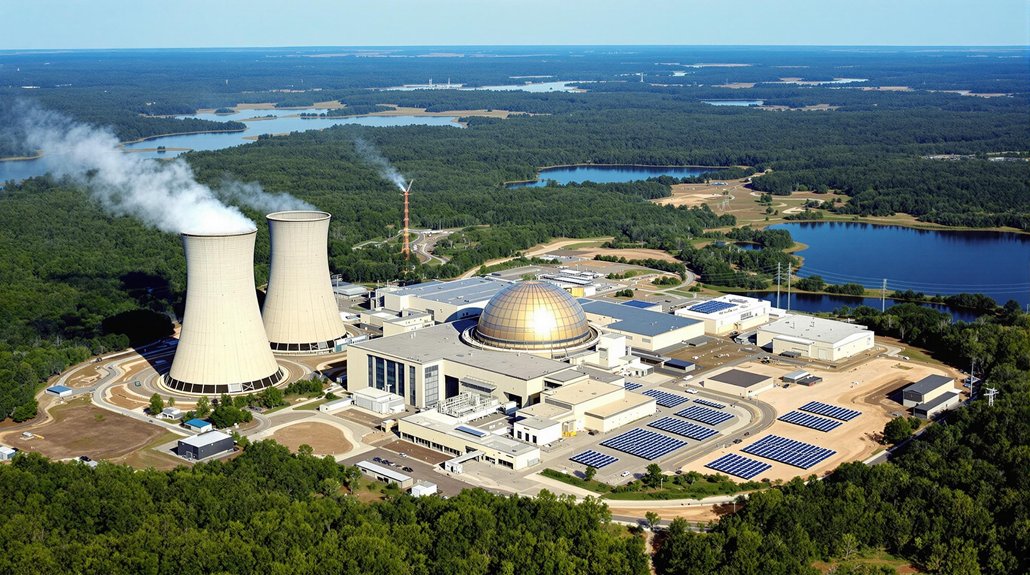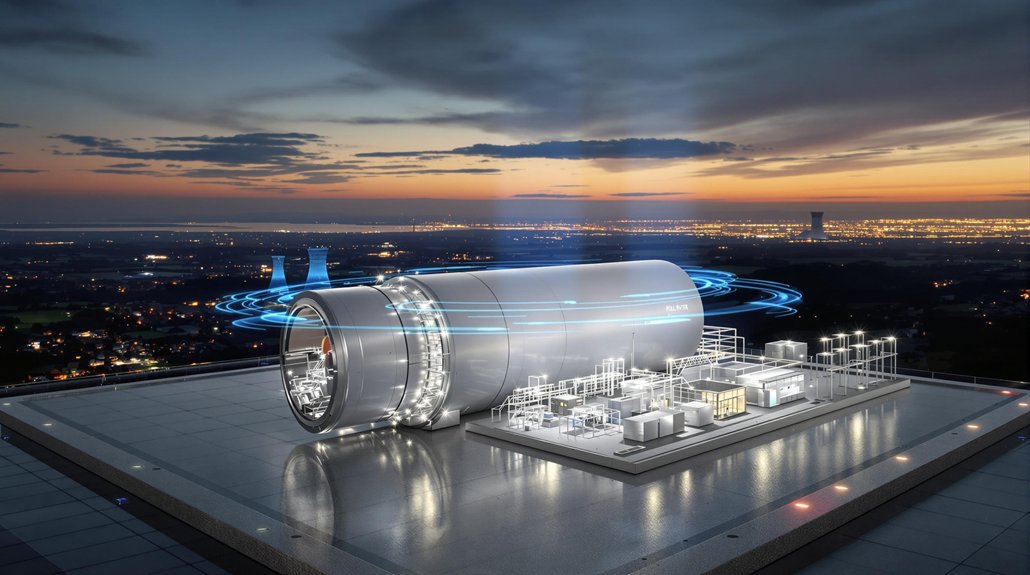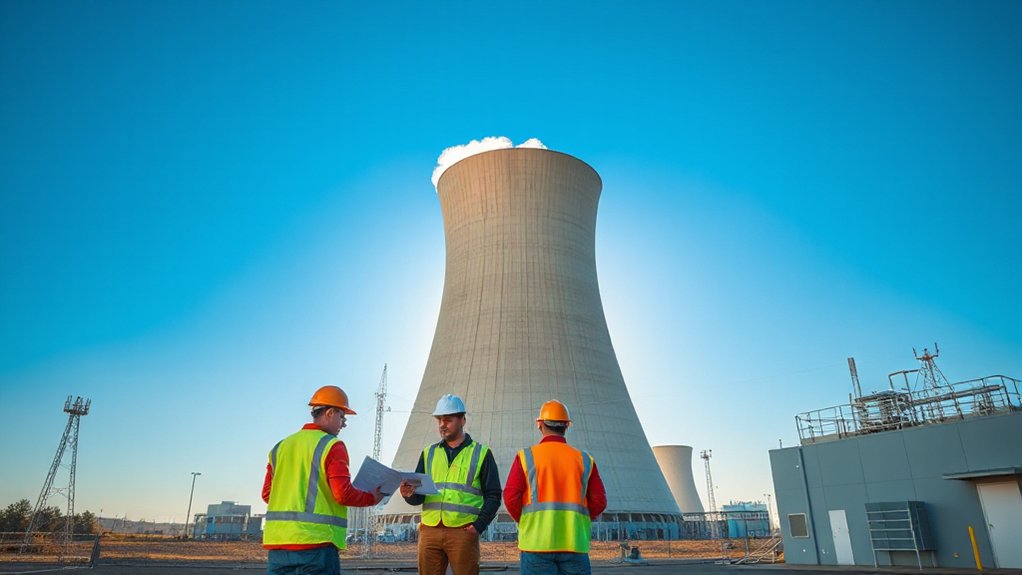The Pentagon just handed a nuclear startup a $7.3 billion golden ticket. Oklo Inc., a company most Americans have never heard of, will build a microreactor at Eielson Air Force Base in Alaska. Not exactly your typical defense contract.
The Defense Logistics Agency Energy picked Oklo to design, construct, own, and operate something called the Aurora powerhouse. It’s a fancy name for what amounts to a nuclear power plant the size of a shipping container. Well, maybe a few shipping containers. The thing can pump out up to 75 megawatts of electricity, plus heat for those brutal Alaskan winters.
Aurora powerhouse: nuclear power the size of shipping containers, pumping 75 megawatts plus heat for Alaska
Here’s the twist: Oklo keeps ownership. They’re not just building it and walking away. They’ll run the whole show for decades under a power purchase agreement. Smart move, considering most military contractors grab their cash and vanish.
The Air Force wants energy that doesn’t depend on fragile power grids. Makes sense when you’re sitting in Alaska, where a snowstorm can knock out electricity for days. The microreactor runs independently, keeping the lights on when everything else fails. Critical for national security, apparently.
Oklo still needs approval from the Nuclear Regulatory Commission. They’ve submitted their Licensed Operator Topical Report, which sounds about as exciting as watching paint dry.
But here’s where it gets interesting: they want operators who can monitor multiple plants from one location. Like air traffic controllers, but for nuclear reactors.
The technology itself uses “inherent safety features” and “advanced automatic controls.” Translation: it’s supposedly idiot-proof. No meltdowns, no disasters, just steady power generation in the middle of nowhere. Oklo’s expertise spans fission technology and nuclear fuel recycling, giving them a unique edge in the fast-growing clean energy sector. The company is also developing a domestic supply chain for radioisotopes, positioning itself as a comprehensive nuclear solutions provider.
This pilot program could change everything. If Oklo pulls it off, expect microreactors popping up at military bases nationwide. The Pentagon wants energy independence and carbon reduction. Two birds, one nuclear stone.
Critics worry about proliferation and security. Fair point. But Oklo’s non-traditional design apparently addresses these concerns. Whether that’s corporate speak or actual innovation remains to be seen.
The stakes are high. Success means a new era of distributed nuclear power. Failure means a very expensive lesson in why we stick with diesel generators.
References
- https://www.marketscreener.com/quote/stock/OKLO-INC-124598202/news/Oklo-Inc-Selected-as-Intended-Awardee-to-Provide-Clean-Reliable-Power-to-Eielson-Air-Force-Base-in-50215266/
- https://www.tipranks.com/news/the-fly/oklo-selected-as-intended-awardee-for-dod-contract-thefly
- https://www.gurufocus.com/news/2920780/oklo-selected-as-intended-awardee-to-provide-clean-reliable-power-to-eielson-air-force-base-in-alaska-oklo-stock-news
- https://www.businesswire.com/news/home/20250610279296/en/U.S.-Nuclear-Regulatory-Commission-Accepts-Oklos-Licensed-Operator-Topical-Report-for-Review
- https://www.devdiscourse.com/article/headlines/3455232-oklos-ambitious-vision-building-micro-nuclear-reactors-for-the-us-military
